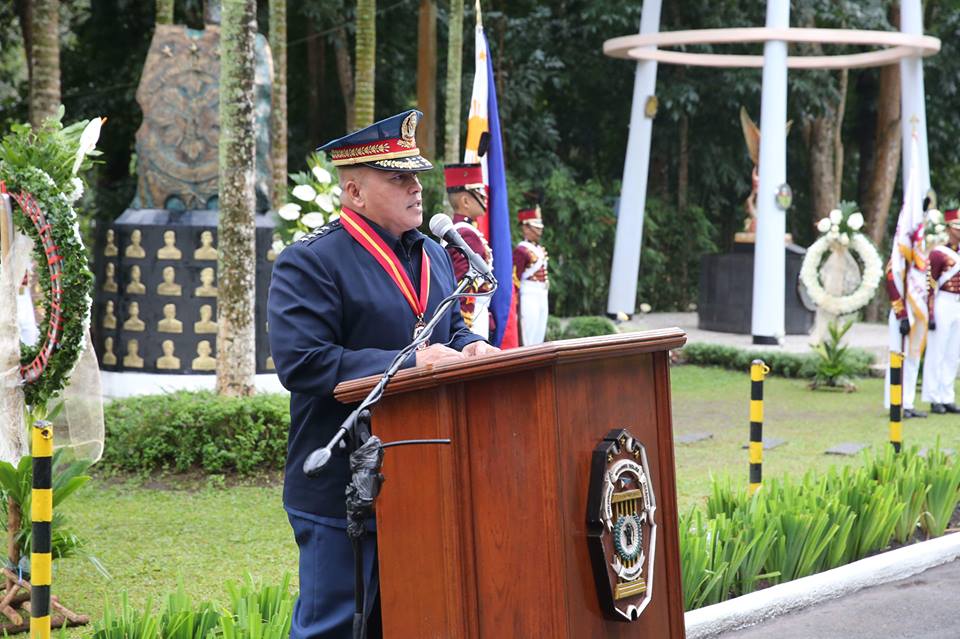Headline
Dela Rosa urges public to participate in Tokhang ops

Philippine National Police (PNP) chief Director General Ronald dela Rosa on Monday urged the public to regularly participate in their anti-drug operations. (Photo: Philippine National Police/Facebook)
Defending that policemen aren’t hiding anything, Philippine National Police (PNP) chief Director General Ronald “Bato” dela Rosa on Monday urged the public to regularly participate in their anti-drug operations.
“Basta maging transparent, anybody kahit sinong gustong sumama, sumama kayo sa Tokhang. Wala kaming tinatago (Just to be transparent, anybody who wants to join can come in Tokhang. We’re not hiding anything),” Dela Rosa said in a press conference in Camp Crame.
Responding to the questions on who is entitled to be a human rights advocate, the PNP chief said that this can be anybody who is advocating for human rights regardless of what groups they are belong to.
The PNP is now requiring that a human rights officer or advocate take part in the Oplan Tokhang operations.
Under the PNP’s new guidelines that was signed by dela Rosa on January 23, groups of chosen people will conduct the knock-and-plead operations.
“The Tokhang team shall be joined by at least one representative from any concerned ADAC (anti-drug abuse council), at least one representative from PNP HRAO (Human Rights Affairs Office) or any Human Rights Advocate,” one of the new provisions read.
Dela Rosa explained that those who will engage in the operations will not do the “knocking” themselves, but should keep their distance.
“Hindi naman sila siguro manggugulo do’n. O-observe lang naman siguro sila do’n siguro. Okay lang basta makakatok namin, makakusap namin ‘yung drug personality sa loob (Most likely, they would not meddle in the operation. They will just observe there. It’s okay as long as we can knock and talk with the drug personality inside),” he said.
The PNP chief’s public invitation comes as the police department resumes on Monday its controversial anti-illegal drug campaign under the new guideline which requires strict observation of human rights.
The PNP HRAO, composed of policemen, is assigned to ensure that the cops uphold human rights through policies, information campaigns, and partnerships with non-governmental organizations.
Aside from human rights representatives, the PNP also required that anti-drug teams have either agent from the church/religious sector, members of the media or other well-known personalities of the community.





















